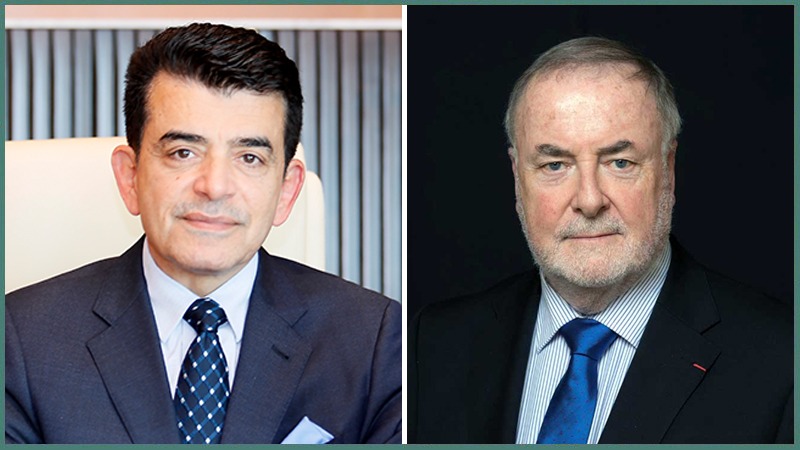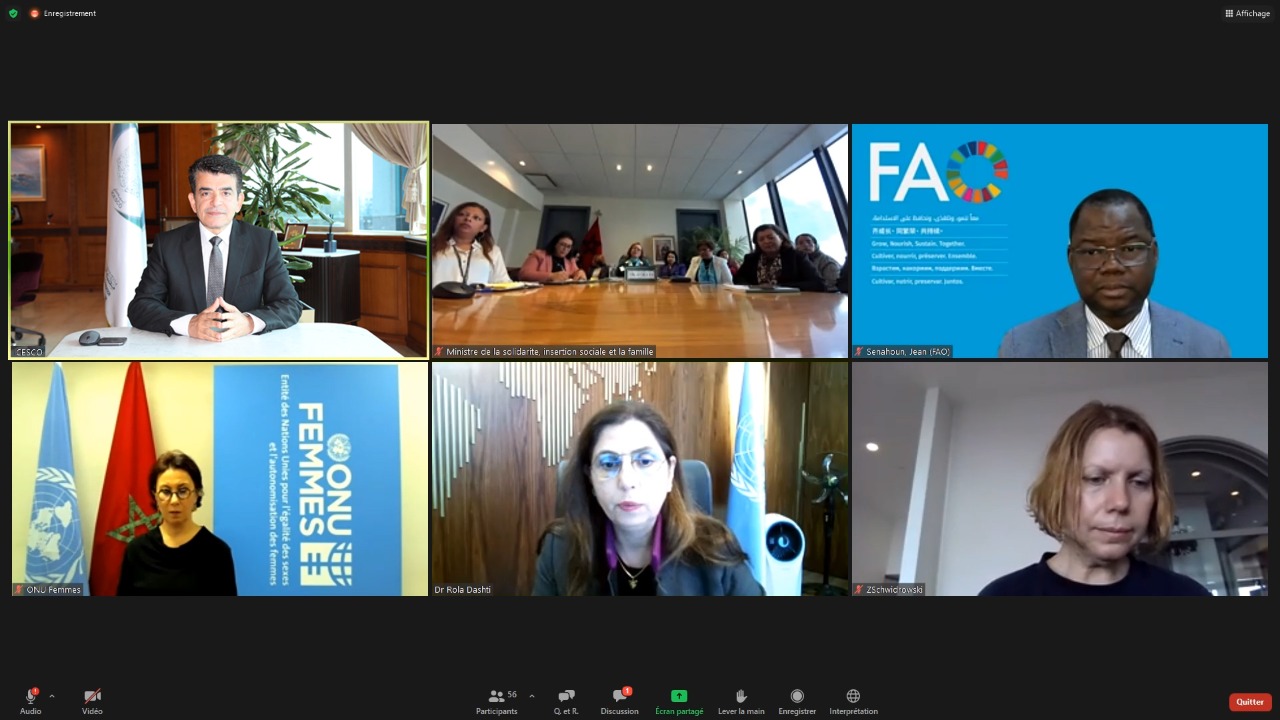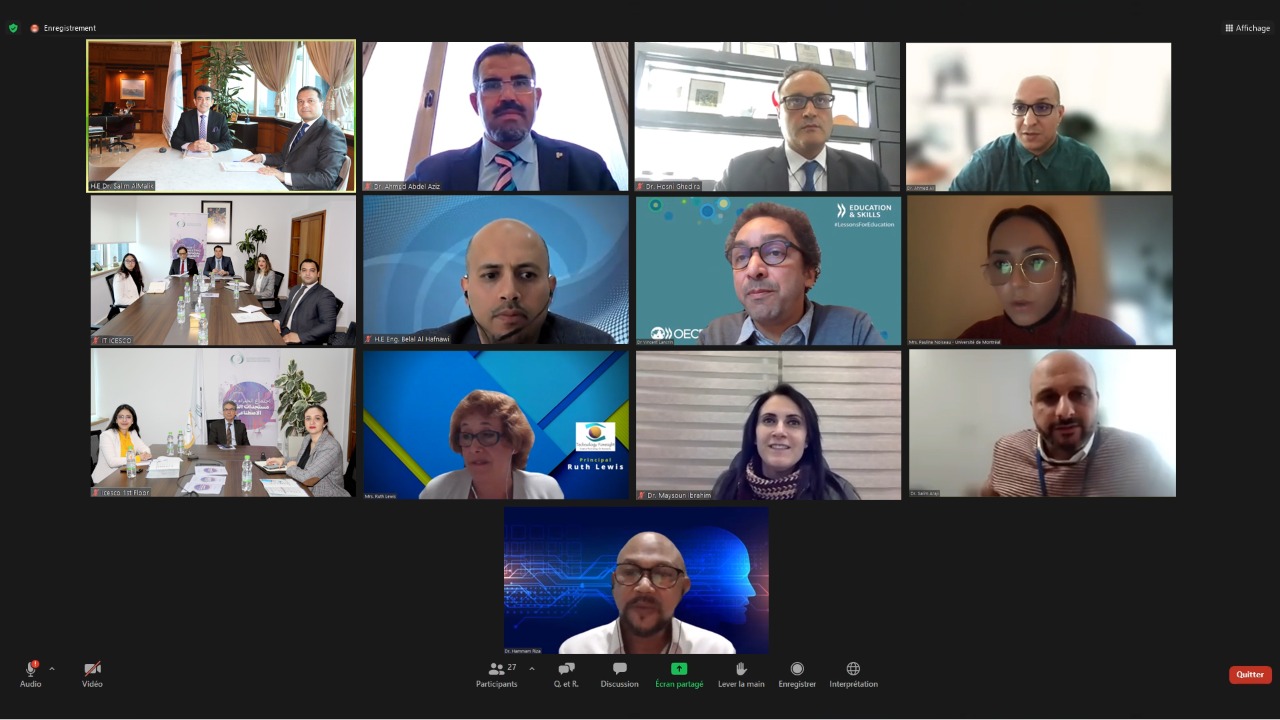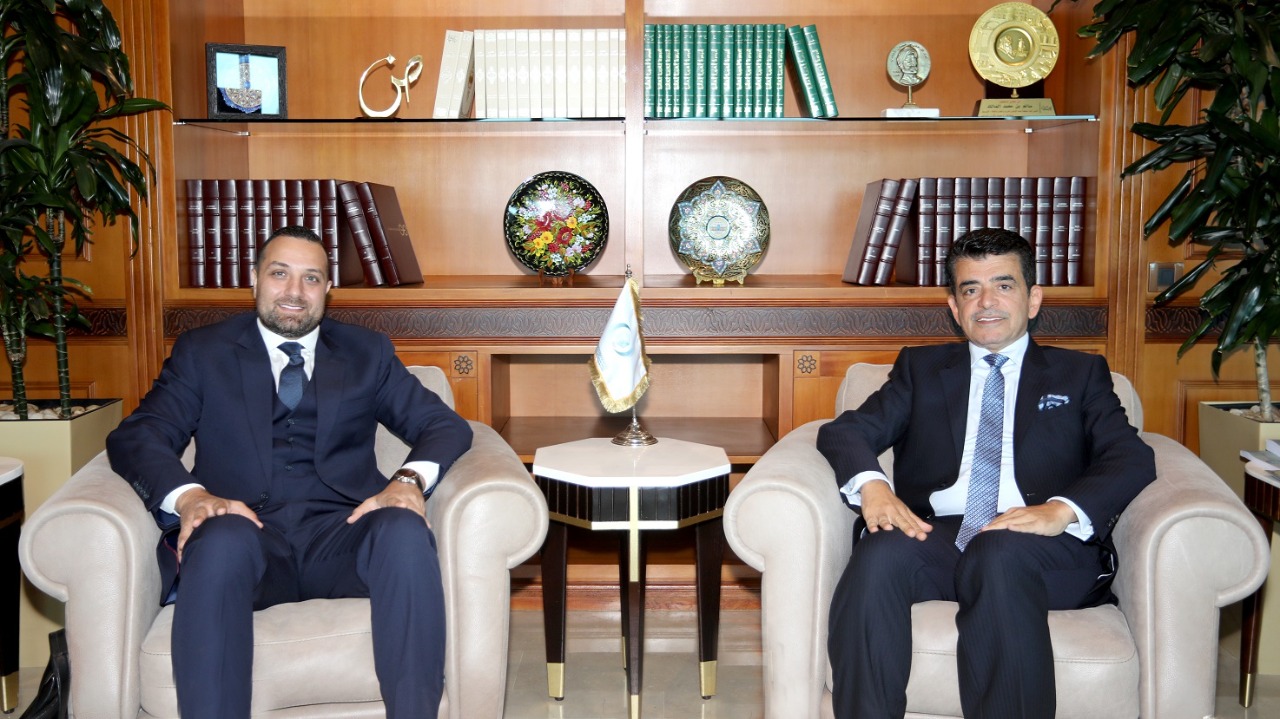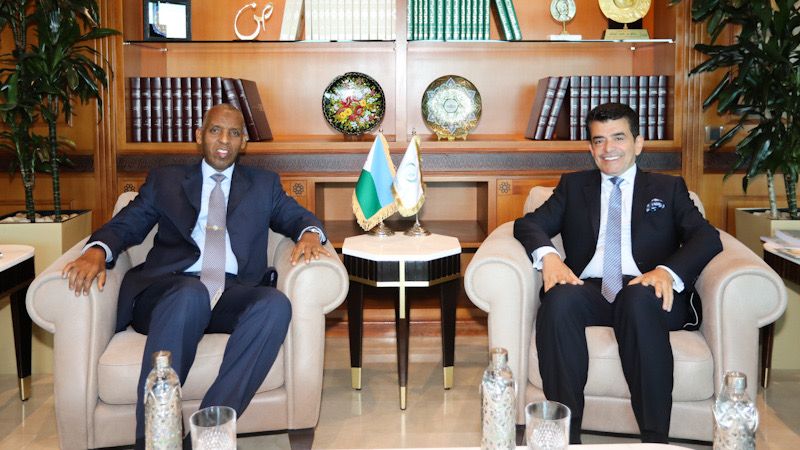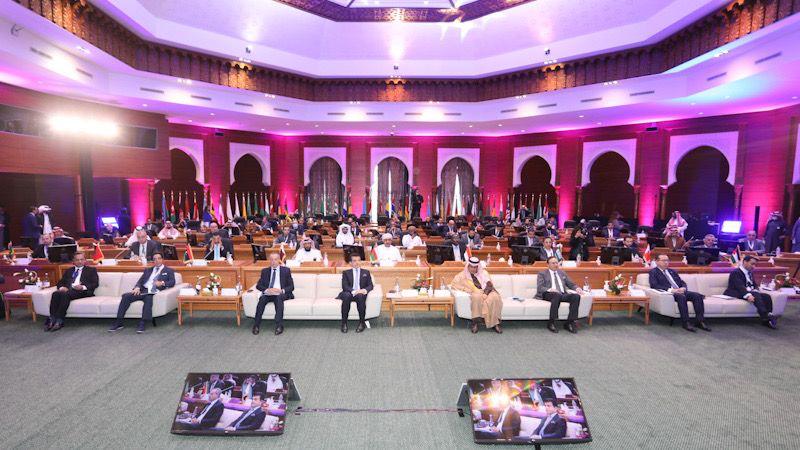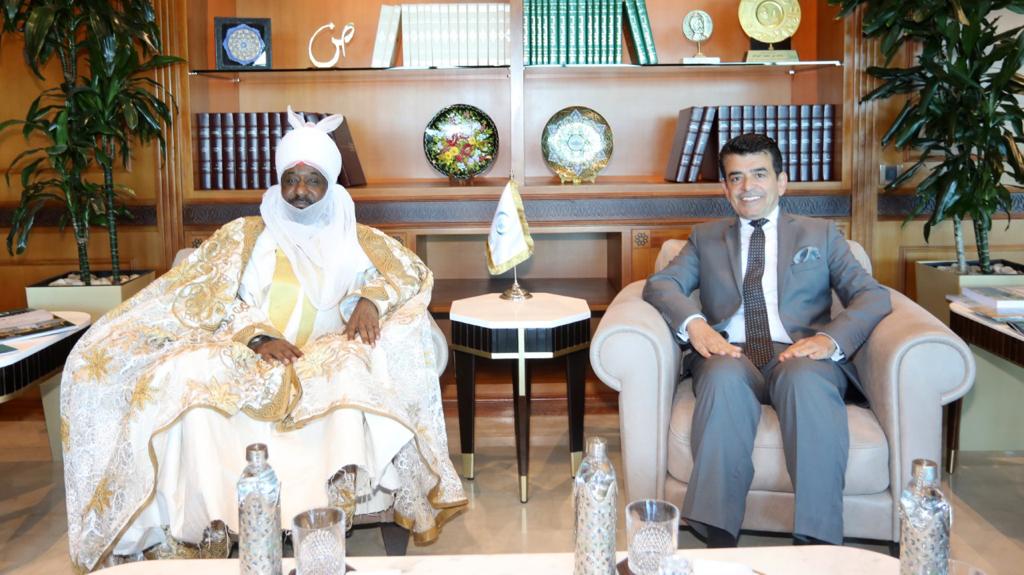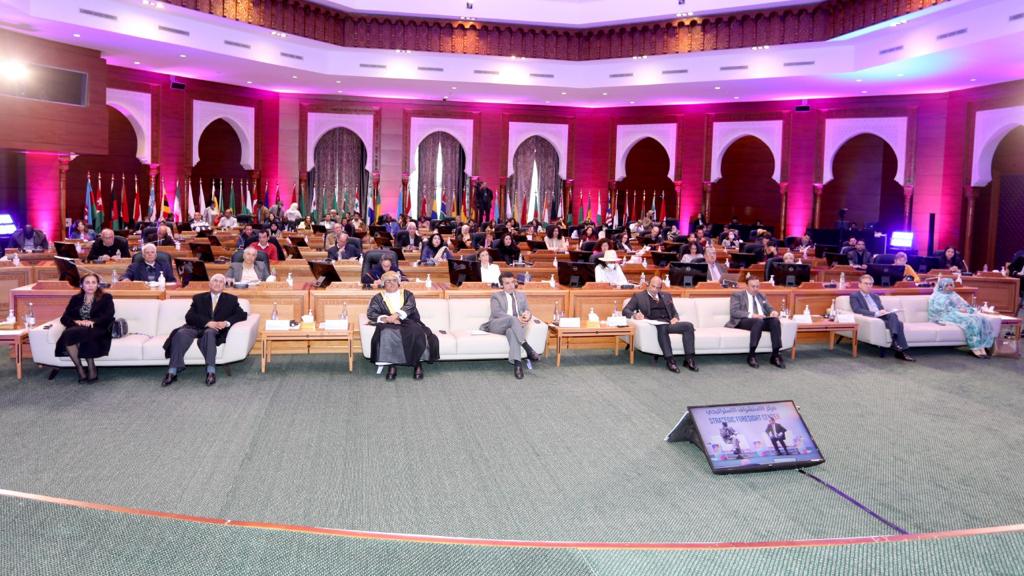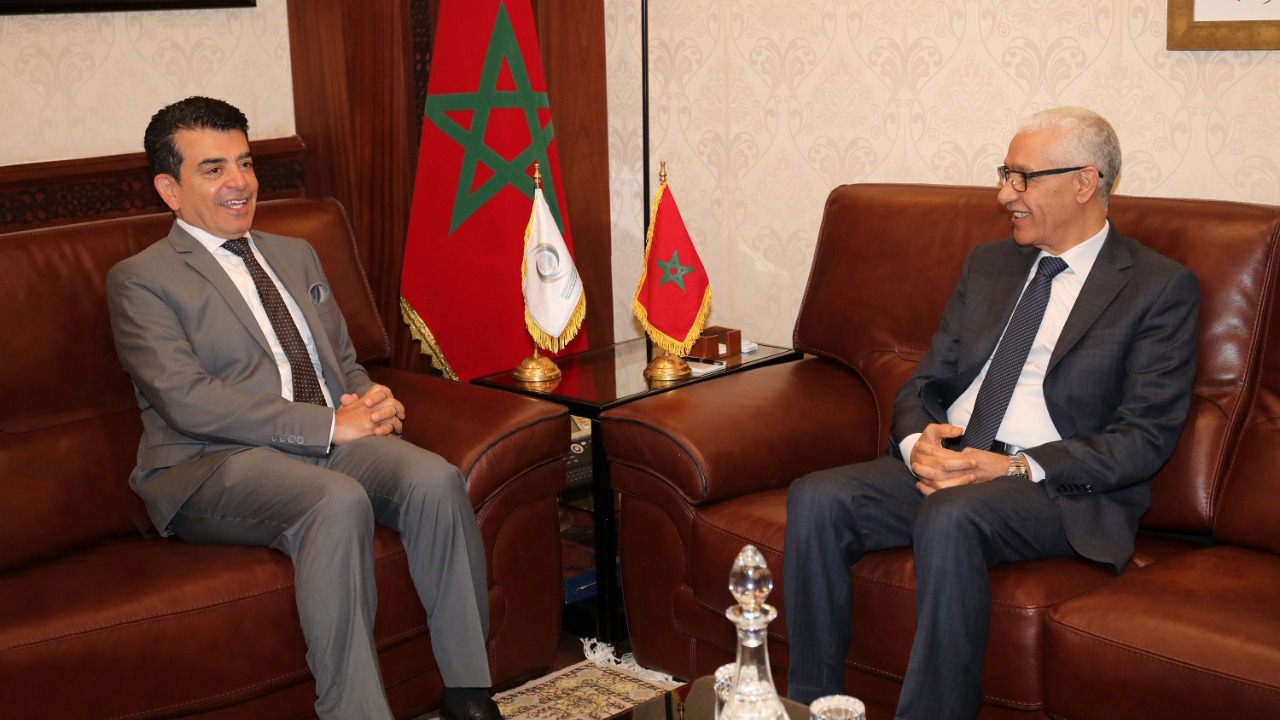Dr. Salim M. AlMalik, Director-General (DG) of the Islamic World Educational, Scientific and Cultural Organization (ICESCO), met with Mr. Loïc Fauchon, President of the World Water Council, on the sidelines of their participation in the Ninth World Water Forum, being held in Dakar, Senegal throughout March 21-26, 2022. The two parties explored ways to promote cooperation between ICESCO and the Council in areas of common interest.
During the meeting, held on March 21, 2022, the DG highlighted the key programs and initiatives that the Organization launched in the field of raising awareness of the importance of preserving water and supporting the use of modern technology to protect the environment and build smart and environmentally friendly cities. The Director-General also talked about the major success of ICESCO’s Program to Improve Water and Sanitation Services in 1000 Rural Schools, which benefited several Islamic world countries and contributed to the achievement of sustainable development.
Likewise, Dr. AlMalik presented Mr. Fauchon with the book, “Peace 360°: Exploring the peace dimensions,” published by ICESCO, with a foreword by the President of Senegal, H.E. Mr. Macky Sall. The book is an initiative aiming at promoting the adoption of a comprehensive approach to addressing peace issues, taking into consideration that water is a key dimension.
At the close of the meeting, the two parties agreed that cooperation in organizing the Ninth World Water Forum in Dakar is a promising start to greater partnership opportunities between the two institutions, within the framework of ICESCO’s new vision and action strategy which is based on the implementation of programs and activities that meet the needs and priorities of each Member State.

